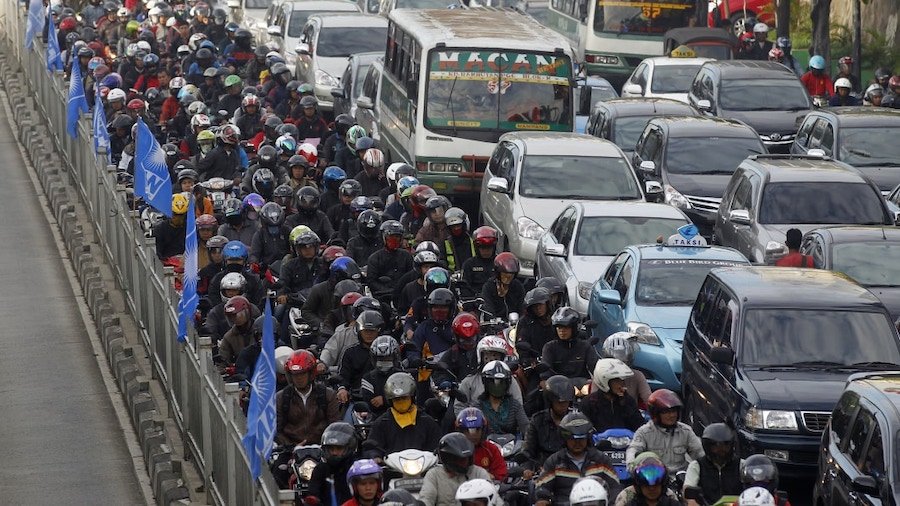Indonesia Apportions Nearly $459M To Electric Motorcycle Subsidies

Indonesia isn’t short on ambition. The South East Asian nation previously targeted a 29-percent reduction in greenhouse gas emissions by 2030. That, hopefully, precedes the country achieving carbon neutrality by 2060. Even bolder, Indonesia aimed to put two million electric motorcycles on the road by 2025. That may seem like an insurmountable amount, but when considering the 133 million registered motorbike owners in the country, it seems more like an attainable feat.
Now, the Indonesian government is putting its money where its mouth is, apportioning 7 trillion rupiahs (~$459M USD) in subsidies for electric motorcycle purchases through 2024. The program will promote the sale of 800,000 new electric two-wheelers. It will also fund the conversion of 200,000 combustion-engine motorcycles.
With the Association of the Indonesian Motorcycle Industry reporting 32,000 electric motorbike owners in the country as of October, 2022, the state-funded subsidy program could mark a watershed moment for electric mobility in Indonesia. Previous reports indicated a goal of registering two million electric two-wheelers by 2025. In the latest report, that number shrunk to one million units by the end of 2024.
Nevertheless, Indonesia could still meet both objectives. For now, the country aims to transition 10 percent of its population to EVs in the immediate future.
“We are launching this program so that massive adoption of battery electric vehicles can be achieved soon, and the Indonesian transportation industry can be transformed into a greener industry,” commented Indonesia’s Coordinating Minister of Investment Affairs, Luhut Pandjaitan.
In support of its motorbike initiative, the government also announced that additional incentives would extend to 35,000 electric automobiles and 138 electric buses. Officials didn’t expand on the four-wheeler program just yet, but the move only fortifies the country’s stance on electric mobility.
This could just be the tip of the EV iceberg for Indonesia as well. With the nation’s nickel- and cobalt-rich deposits, the government hopes to develop a battery supply all its own. Establishing such an industry wouldn’t just help Indonesia reach its emission goals but also yield energy security, products for export, and new jobs. Indonesia may not be short on ambition and it sure isn’t short on opportunity either.
Nouvelles connexes


